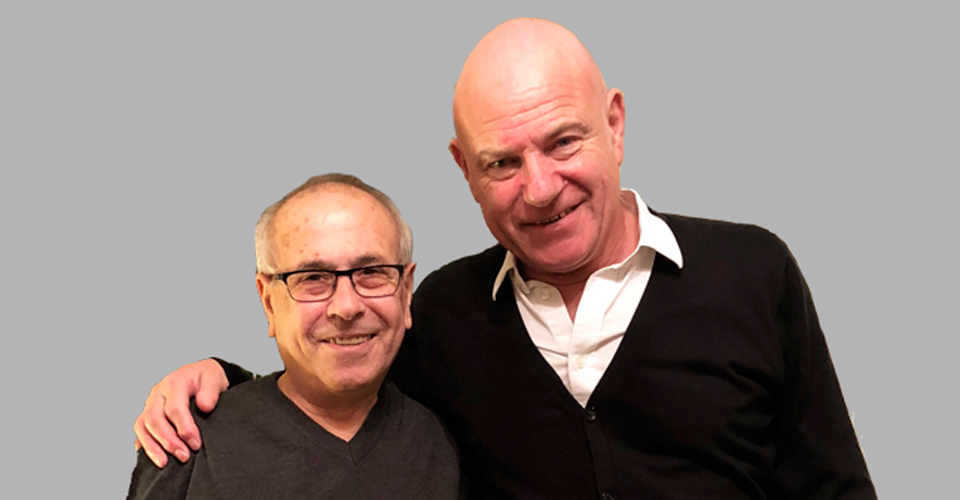- Home |
- Search Results |
- Patrick Barclay and George Pieri: They just stood cheering
Patrick Barclay and George Pieri: They just stood cheering
Author Patrick Barclay meets George Pieri, who 60 years ago watched a wonderful football match played by Busby’s Babes in London - Arsenal 4, Manchester United 5 - that epitomised the sporting spirit of a bygone age

United, however, were about style as much as youthful substance. Wherever they went, they entertained, and only the previous weekend they had put seven goals past Bolton Wanderers at their Old Trafford ground in Manchester, delighting their crowd and critics who deemed the performance near-perfect. The 20-year-old Bobby Charlton had scored three but there were others who seemed destined to scale the game’s peaks, not least the sturdy 21-year-old phenomenon Duncan Edwards. And it was Edwards, watched by George Pieri among the 64,000 packing Arsenal’s Art Deco masterpiece of a stadium, who put United in front with a fierce low drive. Just ten minutes of the match had passed and already the spectators sensed something special.
‘’We were packed in like chickens,’’ George recalled when, nearly sixty years on, we met at his flat in East London. ‘’I’d queued for two hours. There were no tickets in those days. And no segregation. No arguments either. And everybody was cheering from the start that day. There was such excitement. You never knew what was going to happen next, let alone who was going to win. It was a fantastic game.’’ By half-time United were three goals ahead by virtue of Charlton and the brilliant centre-forward Tommy Taylor. But the crucial damage was being done by United’s wingers, the teenager Kenny Morgans and Albert Scanlon, who were tormenting the Arsenal full-backs Stan Charlton and Dennis Evans.

’I’d queued for two hours. There were no tickets in those days. And no segregation. No arguments either. And everybody was cheering from the start that day. There was such excitement.'
Not that the majority within Highbury were silenced for long; a foul by Edwards on Derek Tapscott angered them and soon their favourites began a fightback. David Herd scored once, Jimmy Bloomfield twice. The stadium seemed to reverberate with noise. United, far from collapsing, redoubled their efforts. Dennis Viollet and then Taylor scored to make it 5-3, only for Tapscott to reduce the deficit and cause a final ten minutes of fingernail-shredding tension. The scenes at the final whistle were later described by Dennis Evans, who, although he had been led a dance by young Morgans, captured the sporting spirit of the occasion. ‘’Everyone was cheering,’’ he said. ‘’Not because of Arsenal, not because of United. Just cheering because of the game itself. No one left until five minutes after the game. They just stood cheering.’’
To Busby it would have been sweet music. Although intensely competitive, he always seemed to epitomise a more sporting, less vindictive, era in the history of his beloved sport. He shared the pleasure of neutrals, or even the opposing supporters, in the artistry of his team. ‘’Every time he brought United to London it was a big occasion,’’ said George, ‘’and there was a feeling this was the best team in Europe. I thought they had the best chance of becoming European champions that season.’’
Except that the Busby Babes never got that rematch with Real. They duly flew to Belgrade with a refuelling stop in Munich and took part in another extraordinary match, again letting slip a three-goal lead before reaching the semi-finals on a 5-4 aggregate. But the celebrations were short-lived. The next day they returned to Munich, where their plane’s third attempt to take off from a snowbound airport ended in a crash that cost the lives of 23 people, including eight of Busby’s players. Busby himself almost died – the Last Rites were administered twice as he lay in a Munich hospital – and the story of how he rebuilt Manchester United, finally achieving that ambition to make them champions of Europe just a decade after the disaster, is one of football’s most inspiring.
But in the private recesses of his own mind the ‘’boys’’ who died at Munich were never truly replaced. Edwards was one, Taylor another. They and the captain, Roger Byrne, and maybe others would have gone with England to that summer’s World Cup in Sweden. It has often been speculated since that, had Edwards lived, he and not Bobby Moore would have captained the country’s team when they won the World Cup in 1966. Might England even have challenged Brazil in 1958? George Pieri smiled. ‘’No,’’ he said. ‘’That would have been too early.’’ Brazil had Pele. Just 17 years of age and yet capable of scoring three goals in the semi-finals, then two in the final. ‘’In those days Brazilian players didn’t come out of Brazil and so the rest of the world was in the dark about what their techniques, their tricks, could bring.’’ An element of that old-fashioned mystique will always surround the Busby Babes. How fortunate George was to see them at their best. How worthwhile was that two-hour wait at the Highbury turnstiles.